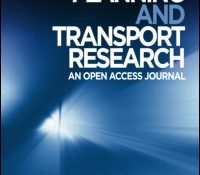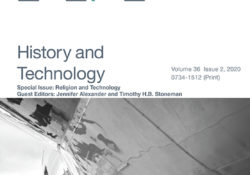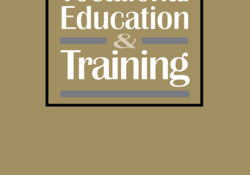tandfonline.com har udgivet en rapport under søgningen “Teacher Education Mathematics”: ABSTRACT ABSTRACT The study of past ‘energy transitions’ are being reinterpreted as possible guides to a low-carbon future. But little is known about the historians who shaped how we understand our transition into a predominantly hydrocarbon-based energy system. Before energy history emerged as a subfield, historians John Nef, Edward Wrigley, and Rolf Sieferle already explained the Industrial Revolution as a result of coal use. In unleashing industrialism, they argued that coal took on an historically decisive role. These notions of energy determinism will be the central concern of this paper. In revisiting their lives and work, it will be argued that in pursuit of a low-carbon future, we should not ignore the grave concerns posed by fossil energy use nor… Continue Reading →
Like this:
Like Loading...
eric.ed.gov har udgivet: Guided by the Next Generation Science Standards and elements of problem-based learning, four human-environment systems simulations are described in brief–carbon, energy, water, and watershed–and a fifth simulation on nitrogen is described in more depth. These science, technology, engineering, and math (STEM) education simulations illustrate design principles that make them engaging to students, such as dynamic visual environments that are controlled by the user and immediate visual feedback to user actions taken. The simulations are contextualized in real-world natural resources management challenges involving biogeochemical cycles, such as Gulf of Mexico hypoxia, which provide an opportunity to “win the game,” while the introduction of complexity in steps provides scaffolding. Pretest versus posttest results indicate a substantial and statistically significant improvement in learning outcomes resulting from using the nitrogen simulation,… Continue Reading →
Like this:
Like Loading...

tandfonline.com har udgivet en rapport under søgningen “Teacher Education Mathematics”: ABSTRACT ABSTRACT Co-generation of energy derived from human movement is not new. Intentionally accumulating energy, from mass urban-mobility, provides opportunities to re-purpose power. However, when mass-mobility is predictable, yet not harnessed, this highlights critical gaps in application of interdisciplinary knowledge. This research highlights a novel application of geostatistical modelling for the built environment with the purpose of understanding where energy harvesting infrastructure should be located. The work presented argues that advanced Geostatistical methods can be implemented as an appropriate method to predict probability distribution, density, clustering of populations and mass-population mobility patterns from large-scale online distributed and heterogeneous data sets published by the Australian Urban Research Infrastructure Network. Where clear urban spatio-behavioural relationships of density and movement can be predicted… Continue Reading →
Like this:
Like Loading...
eric.ed.gov har udgivet: This booklet is a teacher’s guide for a lesson, appropriate for grades 3-9, to strengthen students’ mathematics skills while increasing their knowledge of energy. It consists of a game in which teams of students solve mathematics problems about energy units. The booklet contains 24 challenging mathematics word problems and 1 mega-question. (MKR) Link til kilde
Like this:
Like Loading...
tandfonline.com har udgivet en rapport under søgningen “Teacher Education Mathematics”: Abstract Abstract One of the most important issues in vocational education is the interaction between learning at school and at different workplaces. Students need to transfer what they have learned in and between these different learning arenas. However, little agreement exists among researchers on how to conceptualise and empirically study transfer of learning. This article aims to enhance our understanding of this process in technical vocational education by adding a new perspective on transfer: the phenomenological lifeworld approach. Eleven interviews with students enrolled in the Energy and Industry programmes at a Swedish upper-secondary school were conducted. Three transfer themes emerged from the data: learning for new situations, variation and integration of theory and practice. The student perspective, based on the… Continue Reading →
Like this:
Like Loading...


